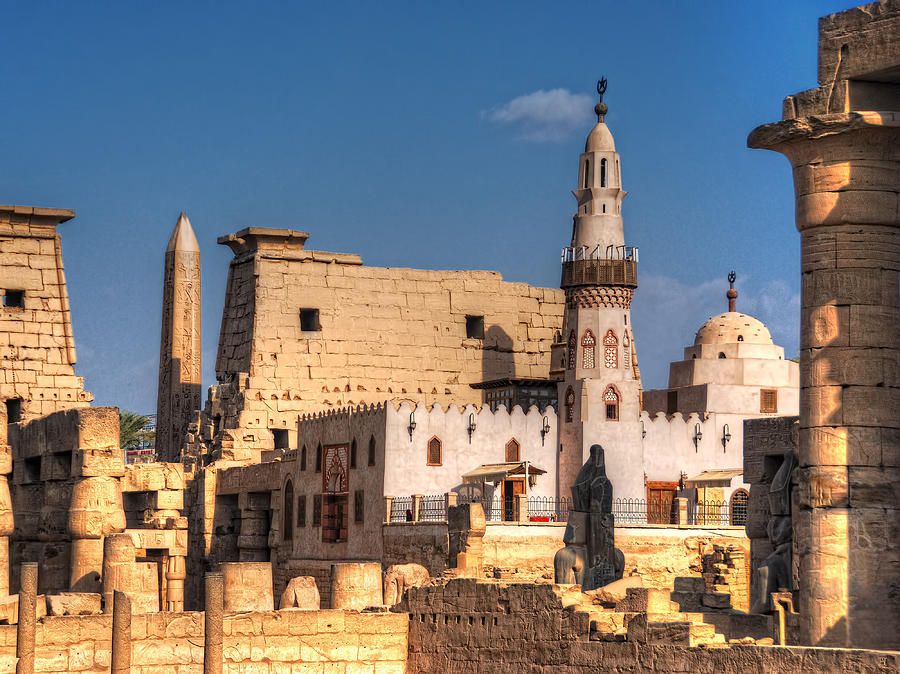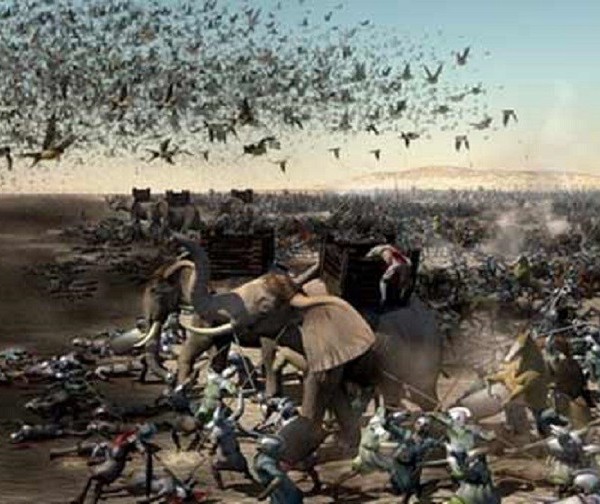
In the eyes of believers, two founding conditions met in Islam that made it independent of all other religions and messages, and of all history, past, present, and future. The problem with Islam is that the closed Islamic intellectual system has extended to include other non-religious sectors of society,
MUSLIMS BELIEVE that the Qur’an – the word of God and the nucleus of all Islamic faith – was revealed to the world from the Lord of the Universe and the Worlds, and preserved in the divine record from eternity, even before God created the universe and what is in it. Moreover, Muslims also believe that their Prophet – Muhammad bin Abdullah – is the master of all creation and the Seal of the Messengers.
Thus, from the beginning, two founding conditions met in Islam that suffice to set it apart from all other religions and messages, and independent of all history – past, present and future: a God who alone has no partner, the Creator of the universe and the Lord of all people, and a Messenger who is the master of creation, the Seal of Messengers, and the Messenger of God to all people.
If the Lord of Muslims is also the Creator of the universe and the Lord of all people, then there is no need for Muslims to exert themselves in searching for this God, for His knowledge, or the secrets of the universe outside the ramparts of Islam. And if the Prophet of Muslims is also the master of creation and the Seal of the Messengers, then He alone and in His Essence will suffice and enrich them over all other creatures, prophets and messengers, from the beginning to the end of time.
In other words, the heavens did not, and will not, send down words that are loftier and more exalted than the Qur’an, and the earth has not, and will not, see a hadith that is truer and nobler than the hadith of the Prophet Muhammad. If the Islamic message, in both its divine part attributed to God and the human (prophetic) part ascribed to Muhammad ibn Abdullah, is complete in this absolute and eternal perfection, then what do Muslims need for any other words, divine or human?
This founding Islamic creed has made Muslims imagine and falsely write off all history before them as a mere subordinating and a paving of the way to the Islamic end, not as distinct, objective historical stages in a continuous record of constant human development and change. Muslims thought, and still do, that history began more or less at the birth of the Prophet in the Year of the Elephant, when God preserved the Ka’ba from being destroyed by the hordes of Abraha’s Abyssinian army and its huge elephants, when God cast down at them stones from the sky.
History then began to be written down starting from the first day of the hijra of the Messenger and his Companions from Makka to Madina – the beginning of the Hijri calendar. Muslims scarcely view all that preceded or coincided with this Islamic historical beginning as anything more than an annunciation and a prelude to this moment, a cosmic preparation for the advent of the greatest of all Messages and the greatest of all Messengers, even if this process had taken thousands of years. With the advent of the Islamic message, history is to have completed, or in other words, attained to its end point with no new history to be expected.
The jurist, the philosopher and the Muslim scholar study all pre-Islamic societies as if they were mere hinterlands or illustrative marginalia
From this standpoint, Muslims began to view everything that preceded Islam or coincided with it or even coincides with it today from a purely Islamic perspective, as something that serves a purely Islamic purpose, and not to be studied as separate and diverse phenomena in and of themselves. This means that the jurist, the philosopher and the Muslim scholar were, and still are, studying pre-Islamic societies – be they Roman, Greek, Persian, Pharaonic, Babylonian, Phoenician, or what have you, as if they were mere hinterlands or illustrative marginalia for the one and only, original Islamic conception, the main purpose of these hinterlands being to highlight the features and virtues of Islam.
There is therefore no call to study and acquaint themselves with these impartially or objectively in themselves, or seek to benefit from them in any way. This remains the view of the Muslim individual vis-a-vis contemporary societies and cultures that are foreign to him today – they are simply there to highlight and affirm his Islamic identity above all else. Even though most of the major religious, political, social and ethical ideas, the theories, forms of worship, the rituals, practices, customs, and traditions prevalent in Islam from its very inception until the present day have been inherited and replicated almost verbatim from many ancient or contemporary times and many places, most Muslims still insist that these are exclusively Islamic.
To give an example: some of the basic concepts of Islam such as God, the angels, Gabriel, Adam and Eve, demons, Iblis, elves, heaven and hell, the concept of reward and punishment, the Ka’ba, the Hajj, fasting, prayer, zakat, the stoning of the adulterer, the cutting of the hand of the thief, God’s shari’a, the prohibition certain food and drink, the prohibition of usury… and so on clearly existed in the same shape and current form long before the advent of Islam, and in very many places beyond the confines of the Arabian Peninsula.
Moreover, Muslims constantly forget that the founding fathers of Islam themselves were not Muslims before they adopted Islam. They were all physically, intellectually, and culturally a part of the pre-Islamic era, to the jahiliyya, the ‘Age of Ignorance’. All of this clearly indicates that they entered Islam with perceptions, concepts, and personalities that were already formed prior to, and inevitably influenced, the subsequent evolutionary curve of Islam itself.

Suggested Reading
The perception of Muslims that Islam is the beginning and the end of history, their dogged clinging to this perception even to this day, leaves them contented with Islam and isolated within its confines.
In other words, Muslims with their own hands have built themselves a large gaol out of Islam to imprison their minds as well as their bodies. But this is what all leaders of religions do with their faiths, and Muslims were are no heretics to this process. The problem with Islam is that the closed Islamic intellectual system has not contented itself with clerics, jurists and scholars. Rather, and here is the real danger, its influence has extended to include the large part of all other non-religious sectors of society, sectors such as politics, economics, ethics, culture, philosophy and scientific research.
Main Image: The Mosque of Abu Haggag integrated into the structure of the Pharaonic Temple of Luxor, Egypt.

